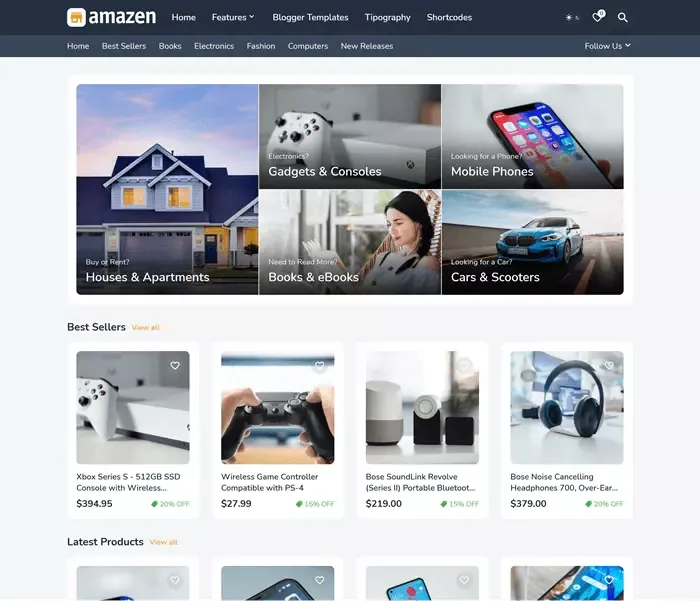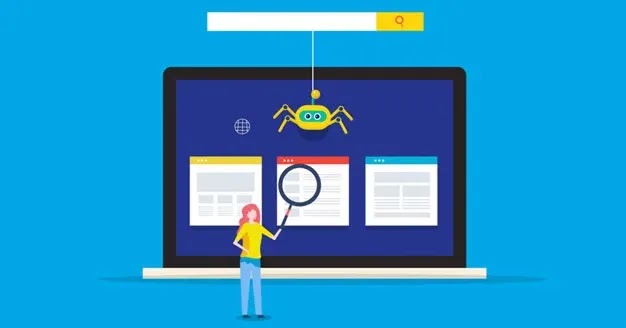How to Start a Complete Functional Free Blog - The Beginner Guide 2022
If you are here, it means that you want to learn How to Start a Complete Functional Free Blog, and I will help you with that. That is why I wrote this ultimate guide for beginners, with all the steps you need to take.
Blogging is a great way to share your knowledge with those who have the same affinities as you, to help them and inspire them to take the actions needed to achieve a result. And, of course, make money.
As for me personally, the decision to start a blog is one of the best I have ever made.
What need to know before you Start a Complete Functional Free Blog
- Choose your Niche
- Choose a Blog Name
- Domain or Subdomain
1. Choose your Niche
You can write about anything that comes to your mind in one day, and you
have 15 different categories, but you can't expect to achieve anything
significant with such a blog. With a lot of effort, you will build a small
community of people around your blog to whom you are less - more likable, who
find it interesting to read some of your posts from time to time, eventually
buy the product you recommended, and that's it. I am sure that this scenario
is not the goal of anyone who aspires to turn their blog into a business.
However, you must not fall into the trap of "profitable niches" here because every niche can be profitable if you do the job correctly. The biggest mistake you can make before starting a blog is to decide to copy one of the successful bloggers whose work you appreciate.
Here are the questions you need to answer before defining the niche and
category of your future blog:
- What topic are you passionate about?
- What interests you the most?
- What could you talk about for hours on end?
- Is there an area where everyone is asking you for advice?
To make your blog successful, you write about a topic you enjoy.
I recommend that you read: How to Choose a Niche for Your Blog - Complete Guide
2. Choose a Blog Name
If you have chosen your niche, it is time to decide the name of your blog.
The blog name should be descriptive so that potential readers can immediately know what you are writing about on your blog.
A name for a blog is just as important, if not the most important. The blog name should be related to the domain. For example, the blog is called My Cakes it is logical that the domain is mycakes.com and that you also choose the name on the social networks Instagram, Facebook, TikTok “.
The name can also be your person if you are the main content on the blog. Or you are an expert in a specific field, and you are building a blog as a personal brand.
The name for the blog of 2-3 words is ideal because then the domain is easier to write and read. What is more appealing to you: mycakes.com or mysweetchocolatecakes.com?
Why is this important? Because the name of your blog = your brand. Try to keep the title short and describe the essence of the blog.
Here are some guidelines for thinking:
- What is the purpose of your blog?
- The name should appeal to everyone (easy to pronounce)
- What is your blog?
- Choose three words that are associated with your blog
- Ten words related to your blog
- What are the topics you will write about on the blog?
- What is the mission of your blog?
Answer the questions above, and you will have at least three ideas for the blog name.
3. Domain or Subdomain
On the Blogger platform, you will have .blogspot (yourblogname.blogspot.com) on behalf of your blog. It doesn’t bother you to blog well, post content, and brand yourself in the online community, but (there’s always someone but) over time, it can start to sting your eyes.
On the Blogger platform, you will have .blogspot (yourblogname.blogspot.com) on behalf of your blog. It doesn’t bother you to blog well, post content, and brand yourself in the online community, but (there’s always someone but) over time, it can start to sting your eyes.
Why do I suggest a domain?
- seems more professional,
- the benefits of SEO blog optimization,
- branding and better recognition.
Apart from these most important reasons, I would like to add some more:
Uniqueness - imagine you have a blog domain with a .blogspot, and someone registers the domain name of your blog.com. Readers will be confused that this is not the same blog.
Convenience - when you tell others where they can find you, it is easier to write .com, for example, than blogspot.com.
Trust - have you ever come across some dubious sites that offer easy money? Have you noticed that almost none of them have their domain?
Take your blog to the next level - a domain for a blog will allow you to stand out from the crowd of bloggers.
A registered domain and blogging under such a domain leaves a better impression and tells others that your blog is "grown-up and mature" and that they can expect quality there. So, if you can choose, choose to be taken seriously.
Of course, not registering your domain does not mean that you are not serious, but it is recommended that you do so if you intend to build something from your blog and become recognizable.
See also: How to Setup Custom Domain on Blogger
Domain extensions can be different and are abbreviations that describe the character of the website:
- .com - Commercial (recommendation)
- .net - Network-related domains
- .org - Non-profit organizations
- .biz - companies and private companies
Why do I suggest Blogger.com and not WordPress
Blogger is much better for beginners than WordPress.
Here are some significant benefits of starting a blog on Blogger.com
- Free SSL certificate - SSL is an acronym for Secure Sockets Layer - a standard global security technology that enables encrypted communication between web browsers and web servers.
- Free web and storage hosting is fast and secure - I think everything is said here.
- Good uptime of the website - is a measure of system reliability, expressed as a percentage of the time in which hosting, work, and was available. Blogger Uptime is 99.99%.
- Easy to integrate Google services - Blogger.com is directly linked to your Google Account.
- Faster index on google
- Easily monetize your blog with Google Adsense. - Both Blogger and AdSense are owned by Google. So, those who start a blog to make some money should know that Blogger enables AdSense by default. You can integrate AdSense directly from your blog, and after activating AdSense, you can start running ads and making money online.
- Easily monetize your blog with affiliate marketing. - Blogger also allows you to use your blog to promote other people's products (affiliate marketing) and thus make money online.
- Price - Blogger is completely free with the .blogspot subdomain. If you want your blog to look more professional, buy a domain, and that's all it can cost you. You can buy the domain at GoDaddy. My recommendation is to take a domain name for two years the price is $ 19.36.
Now that we have clarified some things, it is time to start your Complete functional free blog.
How to Start a Complete Functional Free Blog - Checklist
- Make a Free Blog
- Optimize Blogger For Crawling and Indexing
- Page Speed Optimization
- Create Privacy Policy, Terms and Condition, and About Us Page.
-
Create Contact Us Form Page
Writing Blog Post
If you expect (or believe that others do) to sit at your computer and shoot good text in one go, you will be very disappointed. As a result of such disappointment, many give up blogging because they feel they have no talent for writing.
- Copywriting Tips
-
On-Page SEO Checklist
- Technical SEO
-
Iternal and External Links
- Very Important!
Open social media accounts
Presence on social networks is desirable for everyone who blogs.
Open social media accounts, but don't focus on them as your primary source of the traffic to your blog.
All the statistics of Facebook employees show that the basic motive for staying on that social network is entertainment. People check their Facebook accounts first for themselves - their notifications, then for friends. No one opens Facebook to see if their favorite blogger has posted a new post. They will sign up for that blogger's mailing list for something like that.
You do not need to open accounts on all social networks that exist. You will not be able to be physically active on each of them, at least not at the beginning, when your focus should be on creating quality content for your blog.
When opening accounts, make sure that their names and usernames are the same.
Read Also: How to make Instagram Personal Blog
Conclusion
First of all, I want to congratulate you - now you know everything you need to start a successful blog!
As you can see, it takes a lot of dedication and work to prepare for a blog. I want to emphasize that you do not have to be scared because of that, but excited.
Be patient and persistent in your plans because blogging does not succeed overnight.
Support this blog by letting your friends know about the blog startup guide you just read.
I wish you much success in blogging!










